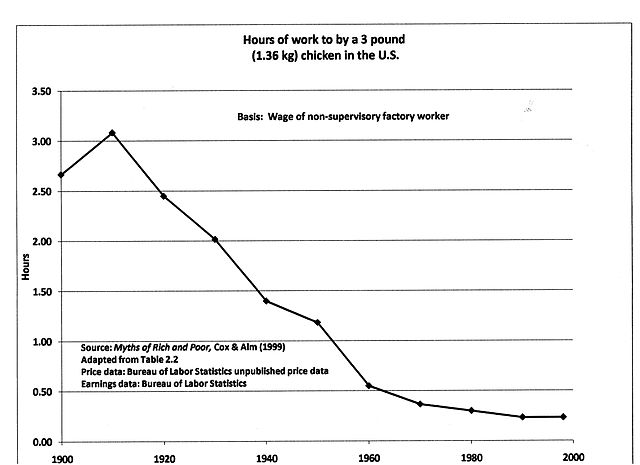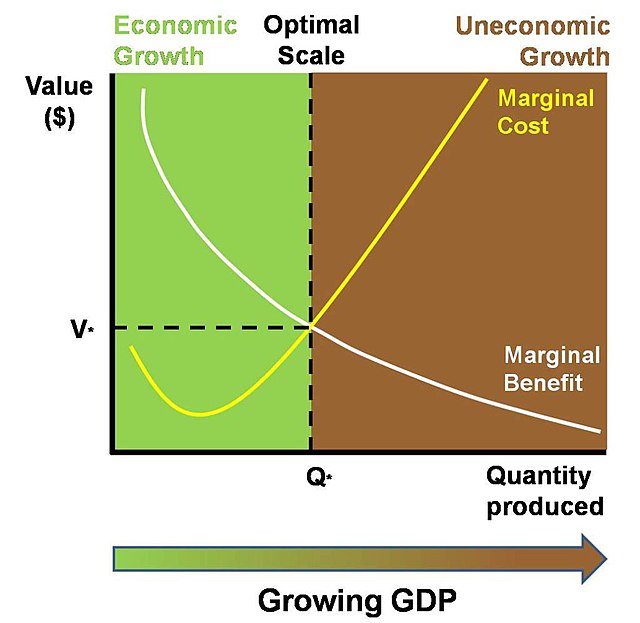Growth accounting is a procedure used in economics to measure the contribution of different factors to economic growth and to indirectly compute the rate of technological progress, measured as a residual, in an economy. Growth accounting decomposes the growth rate of an economy's total output into that which is due to increases in the contributing amount of the factors used—usually the increase in the amount of capital and labor—and that which cannot be accounted for by observable changes in factor utilization. The unexplained part of growth in GDP is then taken to represent increases in productivity or a measure of broadly defined technological progress.
Decomposing increase in output into that due to technology and that due to increase in capital (click to enlarge)
Economic growth can be defined as the increase or improvement in the inflation-adjusted market value of the goods and services produced by an economy in a financial year. Statisticians conventionally measure such growth as the percent rate of increase in the real and nominal gross domestic product (GDP).
Productivity lowered the cost of most items in terms of work time required to purchase. Real food prices fell due to improvements in transportation and trade, mechanized agriculture, fertilizers, scientific farming and the Green Revolution.
The marginal costs of a growing economy may gradually exceed the marginal benefits, however measured.



